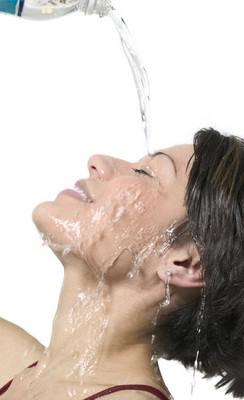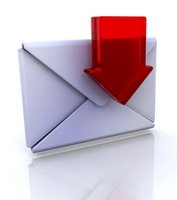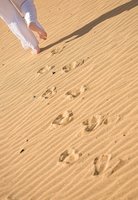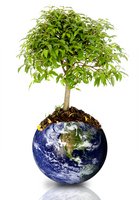How to Conserve-Water-Wisely
Save On Water Usage
Strive to conserve-water-wisely at home with a number of various water-saving-devices. Reduce your water-carbon-footprint at home, and you may find it to be an excellent strategy for lowering your utility bills as well.
Consider how much water we take for granted and waste in the everyday things we do. And then consider that...
90% of our energy costs goes to heating our water.
It would stand to reason, that if you work on using less water than necessary at home, you are apt to heat less water as well.
To save more and preserve the hot water that you DO have, find out how to also maintain your
Hot Water Heater
for as long as you can.
Conserve-Water-Wisely In Your Kitchen
When washing dishes by hand, we can use up to 5,000 more gallons of water per year.
I have to admit, I find this very surprising, but apparently it's very true. I am thinking of my grandmother who not only reminded us constantly to turn off the water, but she used so very little of it herself to wash ALOT of dishes. I know she was quite convinced that she was saving, not wasting.
If you have a dishwasher though, let it do the work.
Only run it if you have a full load to do. Dishwashers work best at full capacity.
Skip the "fancy" cycles and the pre-rinse cycles. It generally isn't needed, and not only wastes water, but is heating gallons of water for nothing. If you must use the pre-rince cycle, but don't run your dishes through twice.
Pay attention to the Energy Star Label if you are looking to replace an old dishwasher. An Energy Star appliance uses approximately 4 gallons of water per load, compared to the non Energy Star brand which typically use 6 gallons.
Fix drips and leaky faucets as soon as possible.
It's amazing how much this adds up over the course of a year and wastes. Apparently it's enough to run your dishwashe through 100 or more cycles, if your tap drips once per second.
When cooking or boiling water for the kettle, use only what you need. There is no reason to fill a kettle to the top and boil it as well for one cup.
When you need water, get it from the "cold" side, not the
hot.
Conserve-Water-Wisely in the Bathroom
Start taking short showers instead of baths. Have a bath once in awhile as a treat, and don't fill to the top.
If you have little kids, shower both of them at once.
Install low-flow shower-heads. They use up 60% less water.
They are energy efficient, they conserve, and still produce the same basic pressure.
Flow-restrictors reduce water consumption considerably.
The great advantage to these is that you can interrupt the water while you shampoo and lather yourself. You can resume the flow at the same rate and temperature when ready.
Up to 70% of your water usage for the toilet can be saved with a flush kit, which can replace large volume kits.
A toilet that keeps running after being flushed, can waste up to 200,000 litres in a year. Get this fixed.
Video no longer available
Setting a two-litre pop bottle filled with water in your toilet tank will prevent two litres of water from being used every time you flush. This is an excellent way to conserve-water-wisely.
Don't use your toilet as a garbage can. How many of us are guilty of using a kleenex and throwing it in the toilet and flushing it? That is what the garbage can is for.
A grey water system which collects soapy water, will divert to the toilet. Instead of flushing clean water, you are flushing "used soapy water" and this system can be installed under your sink .
Teach your children not to run the hot water when standing at the sink for long periods of time. The same goes for adults when shaving or washing hair in the sink. Get into the habit of turning it off when it's not being used.
Water and electrical savings add up when doing your wash as well. See Laundry Room Tips for conserving there too.
Speaking of laundry? Washers and dryers go hand in hand, and the dryer is a wonderful convenience when needed. But what about the use of clotheslines?
Do you think we should
Lift Clothesline Bans everywhere? Many people do. Voice your opinion.
Conserve-Water-Wisely Outdoors
Though it's tempting, sweep your driveway or patio
instead of watering it down. Just like lawns and
gardens, the water just runs off or evaporates very
quickly. We never really need as much as we use.
When you do water the grass, do it early in the
morning and only in the evening. The cool temperatures
will allow the water to seep into the ground.
What about the free water out there that's there for
the taking? Consider
Harvesting Rainwater for extra use
around the yard on off-watering days.
If you want to conserve-water-wisely, start by storing
what comes free.
By visiting
Home Efficiency Tips you can find more information on water smart landscaping and how to reduce your utility bills.
Speaking of "free" earlier, or at least using what we pay for
already, you should read about the
Bottled Water Ban
that a certain group would like to see put into effect.
You could be next on their list to be approached.

We do love our water. For some of us, it's hard to imagine we even need to think of any form of conservation when we are surrounded by it, depending upon where we live.
How it is used plays a big part in reducing our carbon footprint.
Leave Conserve-Water-Wisely, Return To Carbon-Footprint Home Page

Thanks For Your Support
Green Maven!

Popular Tips
Recycling Tips
Garage Sale Tips
Laundry Room
Green Travel
The Company Money
Eco-Baby Gift
Make A Diaper Cake







